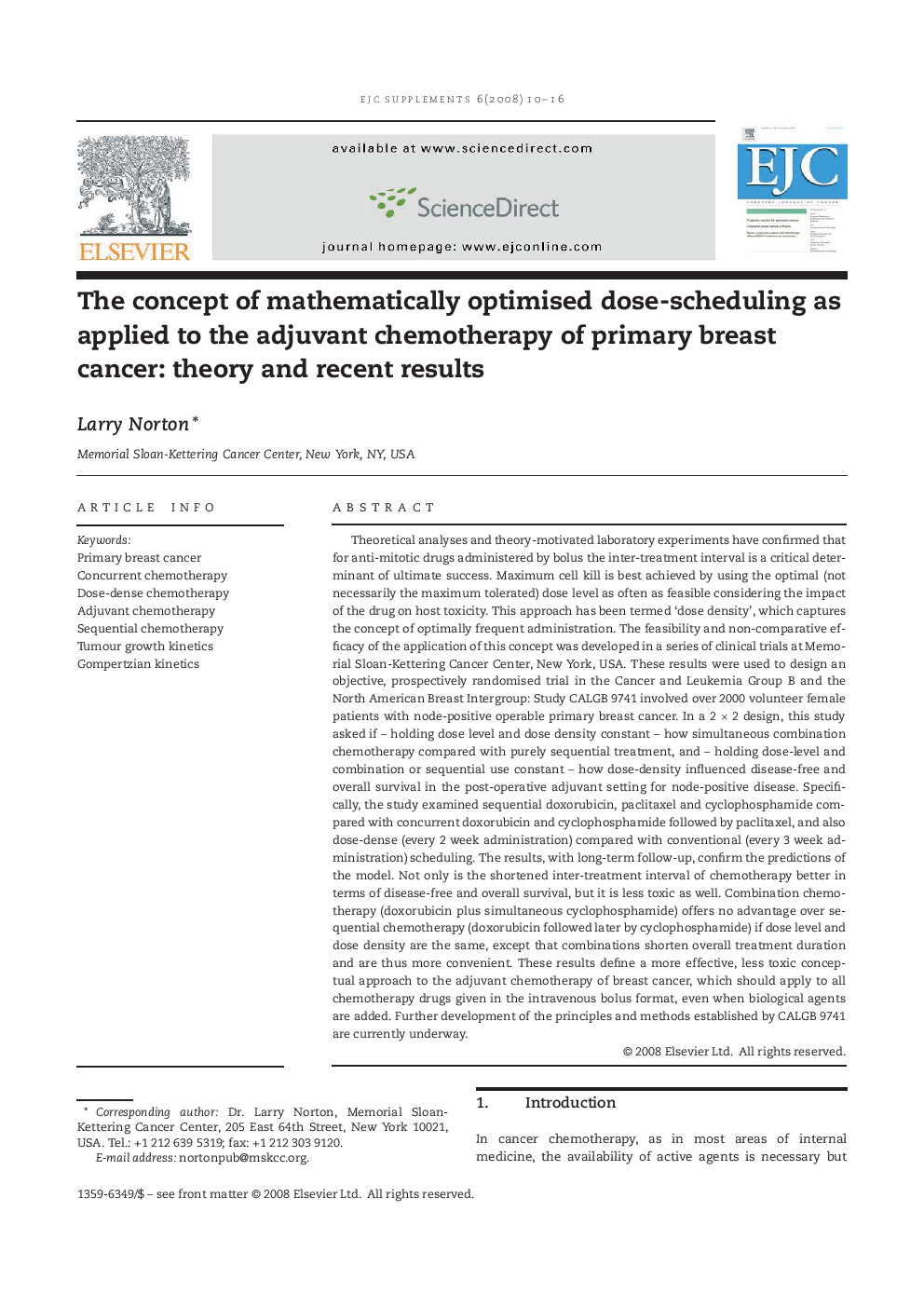| کد مقاله | کد نشریه | سال انتشار | مقاله انگلیسی | نسخه تمام متن |
|---|---|---|---|---|
| 2128998 | 1547621 | 2008 | 7 صفحه PDF | دانلود رایگان |

Theoretical analyses and theory-motivated laboratory experiments have confirmed that for anti-mitotic drugs administered by bolus the inter-treatment interval is a critical determinant of ultimate success. Maximum cell kill is best achieved by using the optimal (not necessarily the maximum tolerated) dose level as often as feasible considering the impact of the drug on host toxicity. This approach has been termed ‘dose density’, which captures the concept of optimally frequent administration. The feasibility and non-comparative ef-cacy of the application of this concept was developed in a series of clinical trials at Memorial Sloan-Kettering Cancer Center, New York, USA. These results were used to design an objective, prospectively randomised trial in the Cancer and Leukemia Group B and the North American Breast Intergroup: Study CALGB 9741 involved over 2000 volunteer female patients with node-positive operable primary breast cancer. In a 2 × 2 design, this study asked if – holding dose level and dose density constant – how simultaneous combination chemotherapy compared with purely sequential treatment, and – holding dose-level and combination or sequential use constant – how dose-density influenced disease-free and overall survival in the post-operative adjuvant setting for node-positive disease. Specifically, the study examined sequential doxorubicin, paclitaxel and cyclophosphamide compared with concurrent doxorubicin and cyclophosphamide followed by paclitaxel, and also dose-dense (every 2 week administration) compared with conventional (every 3 week administration) scheduling. The results, with long-term follow-up, confirm the predictions of the model. Not only is the shortened inter-treatment interval of chemotherapy better in terms of disease-free and overall survival, but it is less toxic as well. Combination chemotherapy (doxorubicin plus simultaneous cyclophosphamide) offers no advantage over sequential chemotherapy (doxorubicin followed later by cyclophosphamide) if dose level and dose density are the same, except that combinations shorten overall treatment duration and are thus more convenient. These results define a more effective, less toxic conceptual approach to the adjuvant chemotherapy of breast cancer, which should apply to all chemotherapy drugs given in the intravenous bolus format, even when biological agents are added. Further development of the principles and methods established by CALGB 9741 are currently underway.
Journal: European Journal of Cancer Supplements - Volume 6, Issue 2, January 2008, Pages 10-16